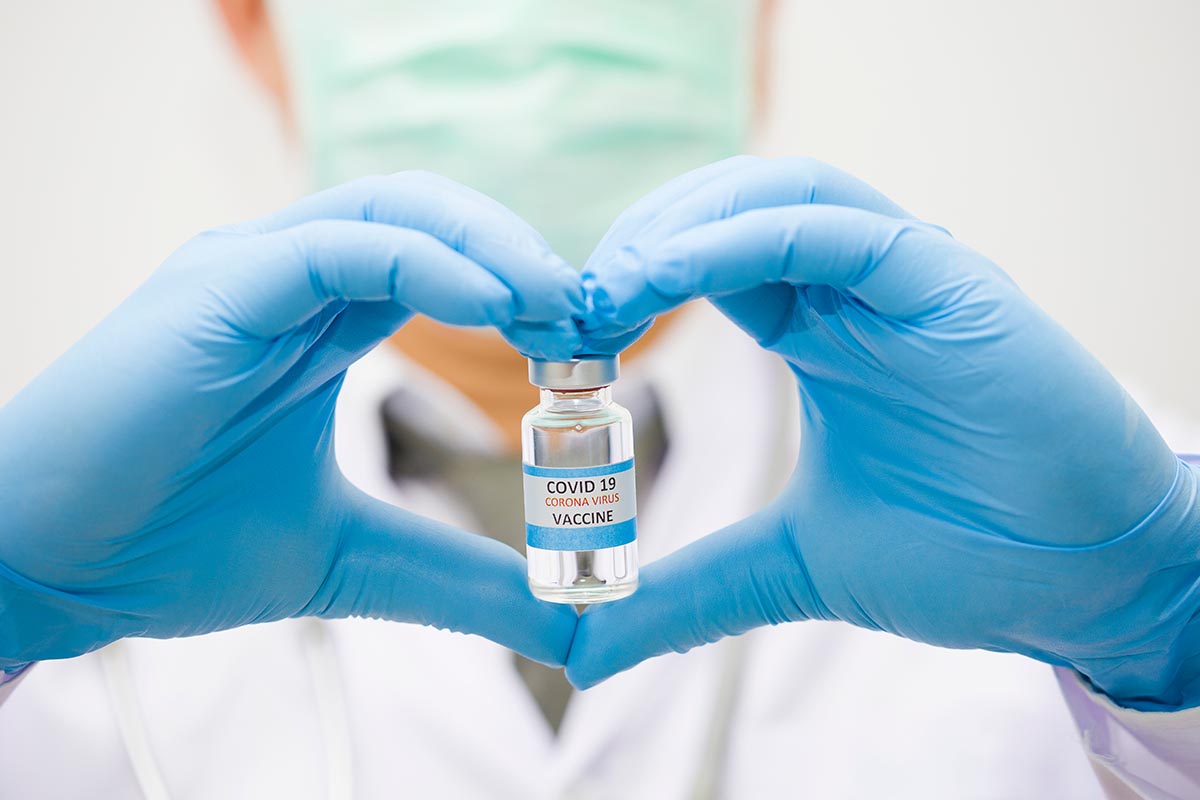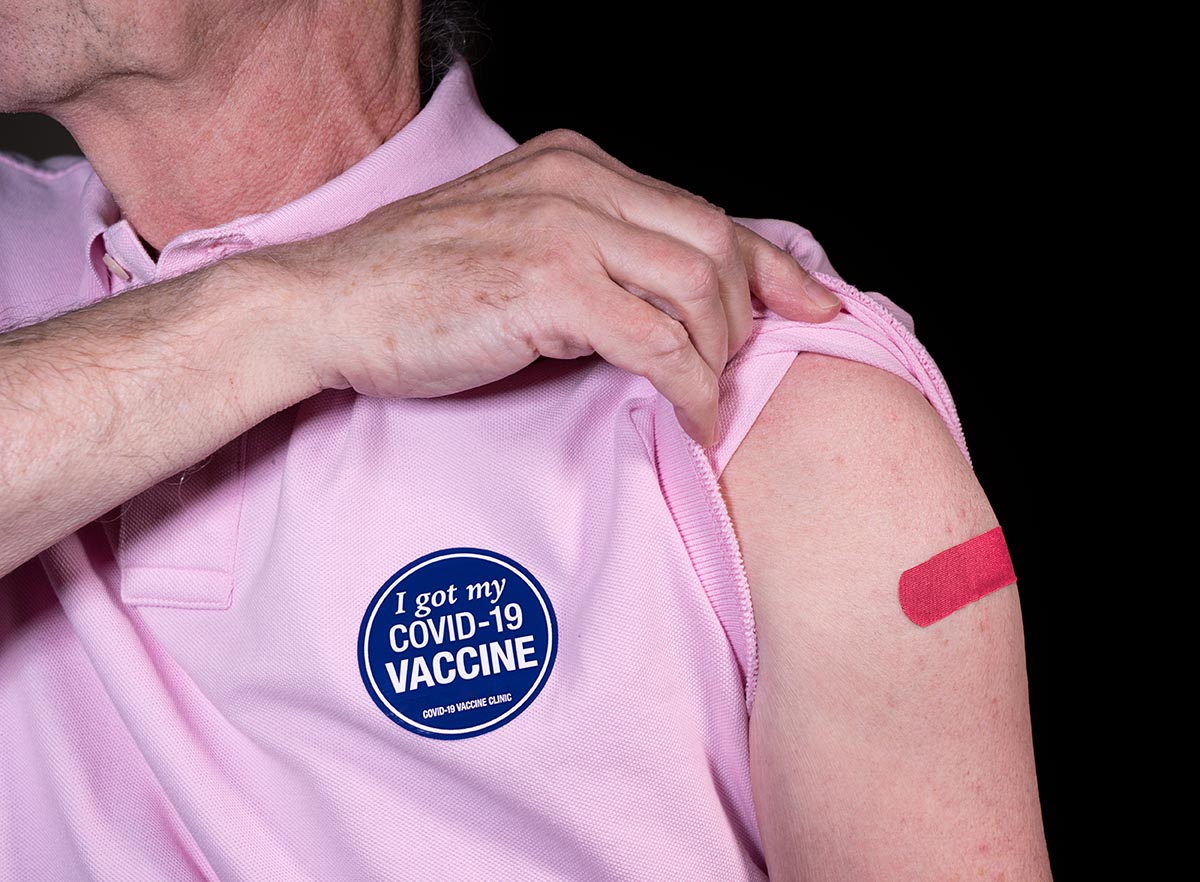Safety does matter - Patients with cardiovascular diseases and COVID-19 vaccines

Due to recent reports associated with some short and long term adverse reactions caused by COVID-19 vaccines, a large number of people have indicated their vaccination hesitancy to delay in acceptance of COVID-19 vaccines despite availability of vaccine services. One of serious side effects involves unusual blood clots that can happen to any parts of the body. Therefore, health-related fear and anxiety have substantially arisen particularly in patients with chronic diseases such as cardiovascular disease. In fact, COVID-19 vaccines help to minimize the risk of infection while reducing disease severity and increasing survival rates. Considered a game changer, COVID-19 vaccines have been claimed to be effective particularly in patients present with co-morbidities, despite the fact that some of them can cause rare side effects related to unusual blood clots. To reach the maximum level of safety, it remains essential to follow instructions prior to and after vaccination.
Cardiovascular diseases and related conditions that can increase the risk of severe illness for COVID-19
A number of medical studies have shown that patients who have certain underlying diseases are at greater risk of developing severe form of COVID-19 if they become infected, resulting in an increased risk of death. Cardiovascular diseases and related conditions that can increase the risk of severe illness for COVID-19 are as follows:
- Any acute cardiovascular diseases that require urgent treatment in the hospital in the last 6 months.
- Pulmonary hypertension – a condition of increased blood pressure within the arteries of the lungs
- Congenital heart disease in adult patients presented with heart failure symptoms
- Coronary artery disease with uncontrolled chest pain or angina
- Advanced heart failure or patient underwent a heart transplant
- Severe obesity (with body mass index greater than 35 kg/m2
- Patients with at least 2 comorbidities or risk factors contributing cardiovascular diseases which fall out of desired ranges, such as uncontrolled diabetes and hypertension.
- Patients with comorbidities and uncontrolled type 1 diabetes (insulin dependent diabetes)
Key advantages of COVID-19 vaccines in patients with cardiovascular disease
Patients with cardiovascular diseases or related conditions as mentioned above should be vaccinated instantly once their symptoms are under control. After vaccination, the immune system is activated to produce immunity to protect the body against infections. Benefits of COVID-19 vaccines include:
- Killing the virus if the immunity is boosted adequately.
- Suppression of viral replication in the body, causing inability of the virus to continue growing and multiplying.
- Prevention of viral integration into cells and minimizing the risk of infection.
- Prevention of disease transmission to others since viral replication in the body can no longer continue.
- Once herd immunity is achieved, SARS-CoV-2 virus cannot further multiply. Thus, besides halting viral mutations, COVID-19 vaccination is an important tool to help ending this global pandemic.

Instructions for patients with cardiovascular diseases prior to COVID-19 vaccination.
To ensure safety in patients with cardiovascular diseases, these instructions should be strictly followed:
- Assessment of current health status and preexisting symptoms. Patients who have underlying conditions such as cardiovascular diseases should evaluate their symptoms whether any serious signs exhibit. For instance, patients with coronary artery disease (the narrowing or blockage of the coronary arteries) might manifest chest pain and discomfort that can radiate to the left arm, especially during physical exertion. Patients with heart failure can exhibit shortness of breath and difficulty breathing when lying down (orthopnea) which is induced by an excess fluid in the lungs (pulmonary edema). To subside orthopnea, the patient needs to raise the head and chest using pillows. If any of these abnormal symptoms arise, it is highly recommended to get the existing condition treated prior to vaccination. COVID-19 vaccination can be considered once all symptoms are kept under control and are advised by the cardiologist. Nonetheless, the exact time frame indicating when should vaccines be administered has not been clinically established. Thereupon, vaccine consideration in each patient is determined by treating cardiologist. Vaccination can be conducted on out-patient basis as appointed when the patients have shown certain degree of clinical stability.
- Patients with uncontrolled hypertension. Patients with persistent high blood pressure, especially systolic blood pressure (a top number) greater than 160 mmHg, need to lower their blood pressure levels and keep them down to an acceptable range. On the vaccination day, systolic blood pressure is required to be lower than 140 mmHg.
- Patients who have taken warfarin (anticoagulant medicine). In case that patients have steady INR levels which are lower than 4.0 in the last 7 days or regular INR levels falling below 3.0, COVID-19 vaccination is applicable without dosage regimen adjustment and INR measurement before getting vaccines. The COVID-19 vaccines can be administered intramuscularly into the deltoid muscle in the upper arm by using fine needles (25- or 27-gauge needles) to prevent bleeding. And the injection site needs to be gently pressed for 5 minutes, followed by a cold compress using ice pack.
- Patients who have taken novel oral anticoagulants (NOACs) and antiplatelet drugs. COVID-19 vaccination can be administered in patients who have taken novel oral anticoagulants or non-vitamin K oral anticoagulants and antiplatelet drugs, such as aspirin, clopidogrel, ticagrelor and prasugrel without stopping the medications. However, to prevent bleeding, it is recommended to use fine needles (25-gauge or smaller needles). And the injection site needs to be gently pressed for 5 minutes, ensuring no sign of bleeding after intramuscular injection. Muscle rubbing at the injection site is not advised.
Before and after being vaccinated, patients can continue their daily lives and tasks as usual, such as eating food, taking medications as prescribed and working. However, it is recommended to refrain from physical exertion or vigorous activity while getting sufficient rest 1-2 days before and after vaccination.
In case that other vaccines are also needed (such as rabies and tetanus vaccines), COVID-19 vaccination can be generally administered as scheduled in combination with other vaccines, but different sites of injection. In some cases, to observe possible adverse reactions or side effects caused by each vaccine, a 1-week interval of each vaccination might be suggested.
COVID-19 vaccines and people who are at risk of cardiovascular diseases
For patients who have contributing factors to cardiovascular diseases, e.g. dyslipidemia, hypertension and diabetes, if their laboratory results and symptoms are well controlled, health check-up before vaccination is unnecessary. On the contrary, if conditions are aggravated or unmanageable, immediate medical assistance must be sought in order to receive appropriate treatments before considering vaccine administration.

COVID-19 vaccines and Cardiovascular disease patients who need treatments
For patients that urgently require to undergo certain treatments for their cardiovascular conditions, e.g. balloon angioplasty and stent placement as well as coronary bypass surgery, COVID-19 vaccination can be considered only after these procedures have been performed with a full recovery.
In elective or non-urgent cases with controlled symptoms or mild-to-moderate severity, the patients need to further consult with their specialists whether they can get significant benefits from COVID-19 vaccines. Considerations of vaccination are made hinging upon the risk of infections and the exposure to high-risk communities. Vaccination is highly recommended if the benefits of vaccines outweigh the risks. Nevertheless, the decision for each individual patient will be made by the specialists while taking into account the current circumstance of the pandemic.
COVID-19 and unusual blood clots
As reported globally and domestically, COVID-19 vaccines can produce serious side effects related to blood clots in the body, leading to the temporary discontinuation of certain vaccines in some countries. Up to the present, blood clots in the veins associated with vaccines have been reported in different parts of the body, such as the brain, lung, thigh and lower leg. The cause of unusual blood clots or thrombosis chiefly involves the activation of immune system that acts against the platelets, resulting in low levels of platelets in the blood and leading to undesired blood clot formation in the body. Nevertheless, blood clots associated with COVID-19 vaccines rarely happen, only one case reported among one million administered doses. Particularly in patients who have regularly taken oral anticoagulant and antiplatelet drugs, the incidences of unusual blood clots drastically decrease.
Getting COVID-19 vaccination in certified hospitals
Patients with cardiovascular conditions need to get their vaccine administration in certified hospitals where medical assistance can be promptly obtained in case that side effects and serious adverse reactions develop. After vaccination, a 30-minute observation at vaccination clinic or hospital is compulsorily required within continuous direct sight of the observing medical staff.
Immediate adverse reactions caused by COVID-19 usually present within 30 minutes after vaccine administration. Most common effects are mild and self-limiting, such as pain or redness at the injection site, headache, muscle pain, joint pain, fever, chills and nausea. Researches reveal that these reactions often develop in young adults, rather than the elderly. During a 30-minute observation, if any of these symptoms exhibits, medical staff need to be informed instantly.
In order to confine the disease effectively, vaccine administration to the whole populations is urgently required while excluding people who are contraindicated to the vaccines. When most of a population is immune to COVID-19 and herd immunity can be achieved, restrictions can be eased and daily lives will eventually resume following standard safety precautions.

